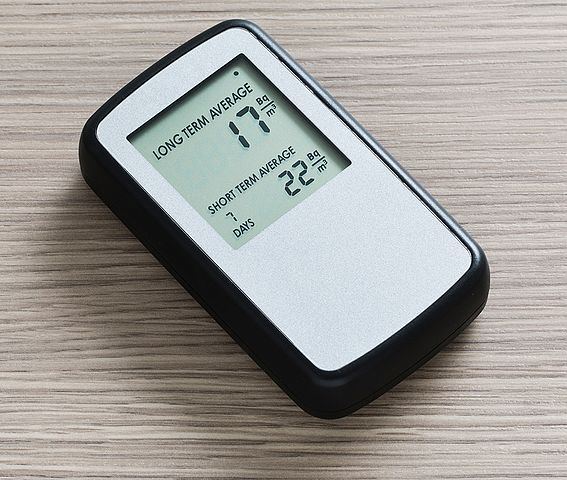Though lung cancer is primarily caused from intentional activities, such as smoking, approximately 15,000 – 22,000 annual lung cancer deaths are radon-related as reported by the National Cancer Institute. Radon is a noble gas on the far right of the periodic table, invisible, odorless, and radioactive. Lehigh Valley is particularly vulnerable to radon simply because it sits on top of shale rock made of primarily uranium. Radon is a result of the breakdown of uranium – thus, the radioactive gas leeches up to the surface, seeping into basements through cracks in the foundation. When humans breathe in radon, it enters the lungs and destroys the cells lining the lungs. As the lungs absorb and pass on what’s in the air, this can spread to the rest of the body just like any other cancer.
Radon is a thing that can be managed – while it is not necessarily healthy, it is certainly tolerable, and will not be harmful in small doses. The US Environmental Protection Agency recommends that each citizen be only surrounded by approximately 4 pCi/L. Yet, an article in the Morning Call recently stated that radon was detected in a home here in the Lehigh Valley at “…a level of 6,176 picocuries per liter, more than 1,500 times higher than the recommended limit”.
Recently, students from Muhlenberg College have taken an interest in this particular carcinogen and conducted their own test. Jordan Zucker ‘20, a member of the Finance Committee and Student Government Association, heard complaints of high levels of radon in the EMS house from fellow students currently residing in the house at a Leadership Session on MLK Day. The residents had purchased a $8-$12 radon-testing kit, and detected a level of radon similar to the other home in Lehigh Valley (Pennsylvania government does not require homeowners to test for radon.). Following this, Zucker decided to take initiative, and on January 30, Zucker reached out to Plant Operations to see what could be done about this.
Jim Bolton of Plant Operations responded with a statement of how they are actively listening to student concerns, clarifying that “…Testing was conducted in [the EMS house] basement and remediation was completed.” However, it is unlikely that radon exposure will impact student health in the long run given that they will likely only live on campus for four years. Also, the highest concentrations of radon are found in the basements of different buildings, places where most students don’t have access to.
Kash Calderon ‘19 has been studying public awareness of radon with Dr. Chrysan Cronin, Director and Assistant Professor of Public Health for the past three years. Within the first phase of the four phase project, Calderon distributed surveys in order to find out which demographics were aware of radon and its potential hazard: of the 551 participants, only 64 percent had heard of radon, and of the 238 Latinos who participated, only 39 percent had heard of it. The next phase was conducted with focus groups of Allentown residents and Muhlenberg staff, where the participants were requested to watch the current government PSAs regarding radon and assess their effectiveness. Some focus groups were facilitated in Spanish, because several Allentown residents are primarily Spanish-speakers. All PSAs were in English, which poses a problem for the focus groups lead in Spanish, since Allentown has a very large Spanish-speaking population.
Currently, Calderon, Brynn Cardonick ‘21, Rashida Haye ‘20, and Dr. Cronin are in phase three of the research project, which is to create a PSA for the Spanish speaking community and will be able to educate them about radon and how to test and mitigate it. However, because it is not regulated by the government, it is not a widely-known health concern. Muhlenberg students are beginning to recognize the dangers and are taking action as a result.























I didn’t realize that radon is another form or byproduct of uranium. That makes it sound a lot scarier when you consider the consequences of radiation. I imagine if you do find out that you live in an area that has radon that you should probably get it checked.